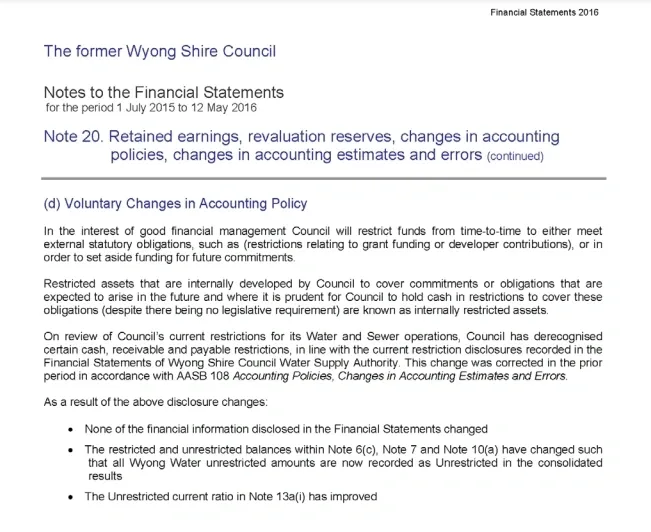
A voluntary change to accounting practices adopted by the first Central Coast Council Administrator in 2016 was disastrous for the new council and must be examined as part of the Public Inquiry being conducted by Roslyn McCulloch.
Chair of the Community Environment Network (CEN), Mr Gary Chestnut, said the group felt compelled to make a submission to the McCulloch Inquiry because of the impact the Council’s financial situation was having on its legal responsibility to Ecologically Sustainable Development (ESD).
“CEN exists to support ESD and fight threats to it and Central Coast Council’s financial problems pose a substantial threat to the ecological sustainability of this region,” Mr Chestnut said.
“That is why the CEN has decided to speak out about the real causes of the Central Coast Council’s financial situation and we believe those causes include a voluntary change to accounting practices made in 2016,” Mr Chestnut said.
“The current terms of reference exclude anything that took place before September 2017, so we have written to Local Government Minister Shelley Hancock requesting that the terms of reference are broadened to examine this issue,” he said.
CEN’s submission to the inquiry highlights that, prior to the September 2017 council election, Administrator Ian Reynolds and CEO Gary Noble approved the accounting change that meant restricted water funds were reported as unrestricted and available to spend within the Council’s consolidated general fund.
“In other words, it looked like the Council had hundreds of millions of dollars more cash to spend on capital works projects than it really did,” he said.
“This policy was adopted by the Central Coast Council and its Executive Leadership Team and has never been rescinded.
“It has been undetected and unchanged by a number of Chief Executive Officers (CEO), Acting CEOs and CFOs and was never explained to the elected Councillors.
Central Coast Council’s Internal Auditor, its Audit, Risk and Improvement Committee (ARIC), the NSW Audit Office and consultant auditors all subsequently failed to question the practice which significantly eroded Council’s restricted funds and contributed to a cash crisis in 2020.
The NSW Crown Solicitor has recently provided advice to the NSW Auditor General which further complicates this issue by finding that the spending of those funds was legitimate, according to CEN.
“This advice by the NSW Crown Solicitor may change the financial position of Council considerably.
“The Public Inquiry must be able to examine whether the additional $150 million borrowed since the councillors were suspended was necessary and whether it was reasonable or just to blame the councillors for the organisation’s financial weaknesses given the Crown Solicitor’s advice has legitimized the spending of restricted funds.
“The ongoing mis-reporting of restricted reserves cannot be overlooked as one of the core reasons for the Central Coast Council’s financial failure. It must be examined by the inquiry.”


